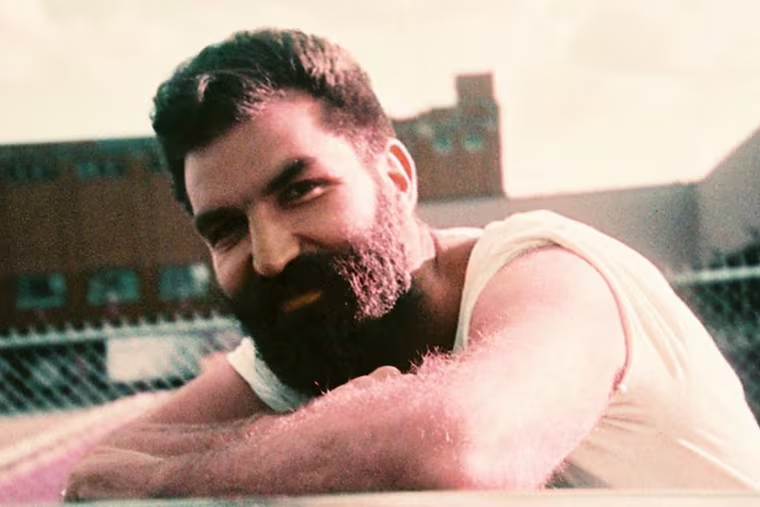Philly native Jeremiah Zagar on his new movie ‘We the Animals’ and his ‘loving, complicated’ family
If you've seen Philly native Jeremiah Zagar's documentary about his family, In a Dream, featuring his muralist father Isaiah, you have a sense of the family's "messy" and "complicated" love.

If you've seen Philly native Jeremiah Zagar's documentary about his family, In a Dream, featuring his muralist father, Isaiah, you have a sense of the family's "messy" and "complicated" love.
These days, it's not so complicated. Jeremiah no longer needs to sort things out with his mercurial father, but he does sometimes need dad's car.
"I was here a few weeks ago, picking up my parents' car," said Zagar, now a Brooklyn resident, whose new movie, We the Animals, opens here Friday. "They'd left for Mexico, so my wife and I borrowed the car to go to the beach."
His folks travel at least once a year to Mexico, the inspiration for much of their work. Julia operates the Eyes Gallery, featuring Mexican art and crafts, on South Street. Isaiah has made 200 murals throughout the city, including the Magic Gardens found-object installation on South Street, now famous the world over, a magnet for tourists and an important part of the cultural life of the neighborhood and the city.
The installation is featured in In a Dream, which also documents the darker side of artistic obsession, and its affect on family. The film won festival awards and played on HBO, helping to draw attention to "outsider" artist Isaiah and his work, which grew from once-abandoned lots when South Street was less prosperous.
>> READ MORE: Isaiah Zagar's mosaic of a life, shattering
>> READ MORE: Which Philly tourist attractions are worth it? A newcomer and a native debate.
"Now [Magic Gardens] has 60 employees, and it's sold out every day. People take selfies in front of it. It's wonderful," Jeremiah said. "If the movie played a small part in that, it's very gratifying. [Isaiah] always wanted to be famous, and now he is. He loves that people know the work, and that was always the purpose, art for the people."
For Jeremiah, the success of In a Dream ignited a 10-year career as a documentary filmmaker. But his first short films were dramas, and he fell in love with movies watching Terry Gilliam's Time Bandits and consumed feature films voraciously as a regular customer at TLA Video on South Street.
"In the beginning, I truly just wanted to be a video store clerk. As a kid, I'd go to TLA every day and rent movies. I had a card my parents bought me that entitled me to 100 movies, or something like that. As many movies as I wanted. And I loved the video store clerks there –, they were always great with recommendations, they had such an encyclopedic knowledge of film, and I envied that and aspired to that."
He eventually got hired in the mail order department but didn't hold the job long.
"I'm dyslexic and I couldn't read people's names. I think I only lasted three weeks."
He studied film at Emerson College, where he began work on In a Dream, completed over several years. Its success led to other documentary work, but he never lost the desire to make dramas.
At a bookshop in Brooklyn, he picked up a copy of the Justin Torres coming-of-age novel We the Animals. He read it cover to cover right there in the store, bought five copes for his producers and creative team, and set out on successful campaign to turn it into a movie. He consulted with Torres, whose book is a loosely autobiographical tale of a Latino boy coming to terms with his sexuality amid the tumult of a loving but often storm-tossed family.
"It's at its heart a story about an emotional family, and [it] reminded me a lot of my family. We are a family that lives in extremes. We believe in messy, brutal, complicated love. I hadn't seen a family like that on screen, and I wanted to make a movie about that family."
Zagar wanted to hew as close to Torres' story as possible, and he involved the author "every step of the way."
His also had invaluable help in writing collaborator Daniel Kitrosser, who, like the protagonist, is gay. In fact, Zagar, believes collaboration is a more important tool for a director than control.
"There's this idea of the auteur director that people latch on to. But it's B.S. The truth is I'm not an auteur. I'm a translator. I'm a person helping to tell a story, and doing it with 40 other people, people of different colors and histories."
Zagar's own history drew him to Torres' book, which centers on a young man who channels his complex feelings about his family into a secret journal full of stories and drawings.
"It's about a young man who frees himself by chronicling his family. The way I freed myself, by doing the same thing."